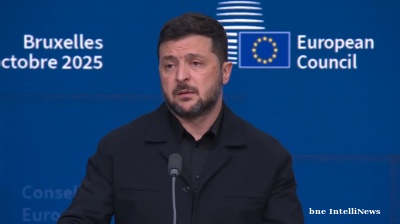Ethiopia is preparing for a true "watershed moment", with plans to officially inaugurate its $4bn Grand Ethiopian Renaissance Dam (GERD) on September 9, just ahead of the start of the Ethiopian New Year and the end of the rainy season in the landlocked East African country.
Prime Minister Abiy Ahmed in early July declared construction finished on Africa’s largest hydroelectric project – nearly 15 years in the making – hailing it as the "crowning achievement of a generation", and extending invitations to Egypt and Sudan to attend the ceremony.
Hours later on that same July day, Egypt’s Minister of Irrigation reaffirmed Cairo’s categorical rejection of Ethiopia’s continued unilateral actions concerning the Nile River.
Ahead of this week’s ribbon-cutting ceremony on the GERD, Ethiopia’s two downstream neighbours raised fresh objections to the project, calling the mega-dam a “threat” to water security and regional stability erected in “violation of international law”.
Addis Ababa roundly rejects these claims, insisting that regulated releases from the GERD – built on the Blue Nile River in the Benishangul-Gumuz region, about 30km from the Sudanese border – mean it will not substantially reduce the flow of water.
Work on the dam began in 2011, and it has been generating electricity since 2022 through phased commissioning. Once fully operational, it is expected to reach an installed capacity of around 5,150 megawatts (MW), based on its 13 turbines (2 × 375 MW and 11 × 400 MW), roughly doubling current capacity and creating scope for regional power exports to neighbouring countries such as Kenya and Djibouti.
Prime Minister Abiy Ahmed described the GERD as “a symbol of Ethiopia’s resilience and capacity,” according to BBC News. State media referred to the mega-dam as “a monument of Africa’s renaissance,” underscoring its political significance at home, where it is a source of national pride.
According to Capital Ethiopia, about 91% of the project’s financing – which some news outlets estimate cost $5bn or more – came from the state-owned Commercial Bank of Ethiopia (CBE), with the remainder covered by domestic contributions and bond sales. Ethiopian businesses, citizens, and its diaspora, all rallied to fund its construction over the past decade.
Chinese lenders, including the Export-Import Bank of China, contributed targeted financing for turbine and electrical system costs. Ethiopian officials said the bulk was funded domestically as part of a deliberate strategy to limit external debt exposure.
From the start, Ethiopia’s downstream neighbour Egypt was opposed to the GERD being built, citing fears the project threatens its historic and vital share of Nile waters, which underpin agriculture and livelihoods for over 100mn people who live near its shores.
Cairo, which relies on the Nile for 97% of its water needs, argues that Addis Ababa acted unilaterally in constructing and filling the dam, bypassing long-standing treaties (which Egypt considers binding but Ethiopia does not recognise) and ignoring calls for a binding legal framework on water releases, drought management, and reservoir operations.
Egyptian officials say the lack of safeguards creates an existential risk to its water security and undermines the historic order of Nile governance, not least its share of Nile waters set under colonial-era treaties. Sudan, another downstream neighbour, has taken a more ambivalent stance over the years, but often publicly sided with Egypt.
“The Ethiopian dam, in violation of international law, entails serious consequences for the two downstream states and represents a continuous threat to stability in the Eastern Nile Basin,” reads a joint statement from Egypt and Sudan, issued on September 3, during the second round of their 2+2 Consultative Mechanism in Cairo, as quoted by The Reporter (Ethiopia).
Ethiopia secured the support of upstream nations, including Uganda, after the Cooperative Framework Agreement (CFA) on the equitable use of Nile Basin waters entered into force in October 2024. The accord was ratified by six members of the 10-country Nile Basin Initiative — Ethiopia, Rwanda, Tanzania, Uganda, Burundi and South Sudan.
The CFA, first signed in 2010, provides a legal basis for upstream states to pursue water projects without Egypt’s prior approval. Cairo and Khartoum refused to ratify the deal, warning it undermines their historic rights to Nile flows guaranteed under colonial-era treaties.
Diplomatic negotiations, supported at times by the African Union and the United States, have yet to produce a lasting water-sharing deal. Cairo continues to press for a treaty-based arrangement rooted in the 1929 Anglo-Egyptian Treaty and the 1959 Nile Waters Agreement, which Ethiopia does not recognise.
Africa holds some of the world’s richest hydropower resources, yet its vast potential remains largely untapped. According to the International Hydropower Association’s (IHA) 2025 World Hydropower Outlook, the continent has only harnessed about 11% of its technical potential, despite hydropower already contributing around 20% of Africa’s total electricity generation.
GERD at a glance
- Full name: Grand Ethiopian Renaissance Dam (GERD)
- Location: Blue Nile, Benishangul-Gumuz region, ~30km from Sudan border
- Project cost: ≈ $4bn (some estimates $5bn+)
- Funding: 91% by Commercial Bank of Ethiopia; balance from domestic bonds and contributions; partial turbine/electrical finance from China Exim Bank
- Construction start: 2011
- Declared completion: July 2025 (civil works finished; commissioning ongoing)
- Inauguration: September 9 (ahead of Ethiopian New Year)
- Capacity: 5,150 MW (phased commissioning since 2022)
- Significance: Africa’s largest hydroelectric project
- Regional context: Ethiopia aims to become an energy exporter; Egypt and Sudan warn of risks to Nile water security
News
Category 5 hurricane Melissa bears down on Jamaica with Haiti and Cuba in storm's path
A catastrophic Category 5 hurricane was bearing down on Jamaica on Monday, October 27 afternoon with sustained winds of up to 282kph (175mph), threatening to become the strongest storm the Caribbean island has ever experienced.
.jpg)
US senator tells Maduro "head to Russia or China" as warships close in on Venezuela
A senior US Republican senator has warned that Venezuelan President Nicolás Maduro's time in power is running out and suggested he leave the country, as military tensions in the Caribbean continue to escalate.

Milei celebrates resounding victory in Argentina's midterm elections
Argentine President Javier Milei scored a major win for his La Libertad Avanza (LLA) party in Argentina's October 26 midterm legislative elections, as the party obtained approximately 40.84% of the nationwide vote with 99.14% of the votes counted.

Zelenskiy accuses China of aiding Russia’s war effort through industrial and military support
Ukrainian President Volodymyr Zelenskiy accused China of materially supporting Russia’s military-industrial complex, providing key technologies and resources that have enabled Moscow to sustain and scale its war effort against Ukraine.




